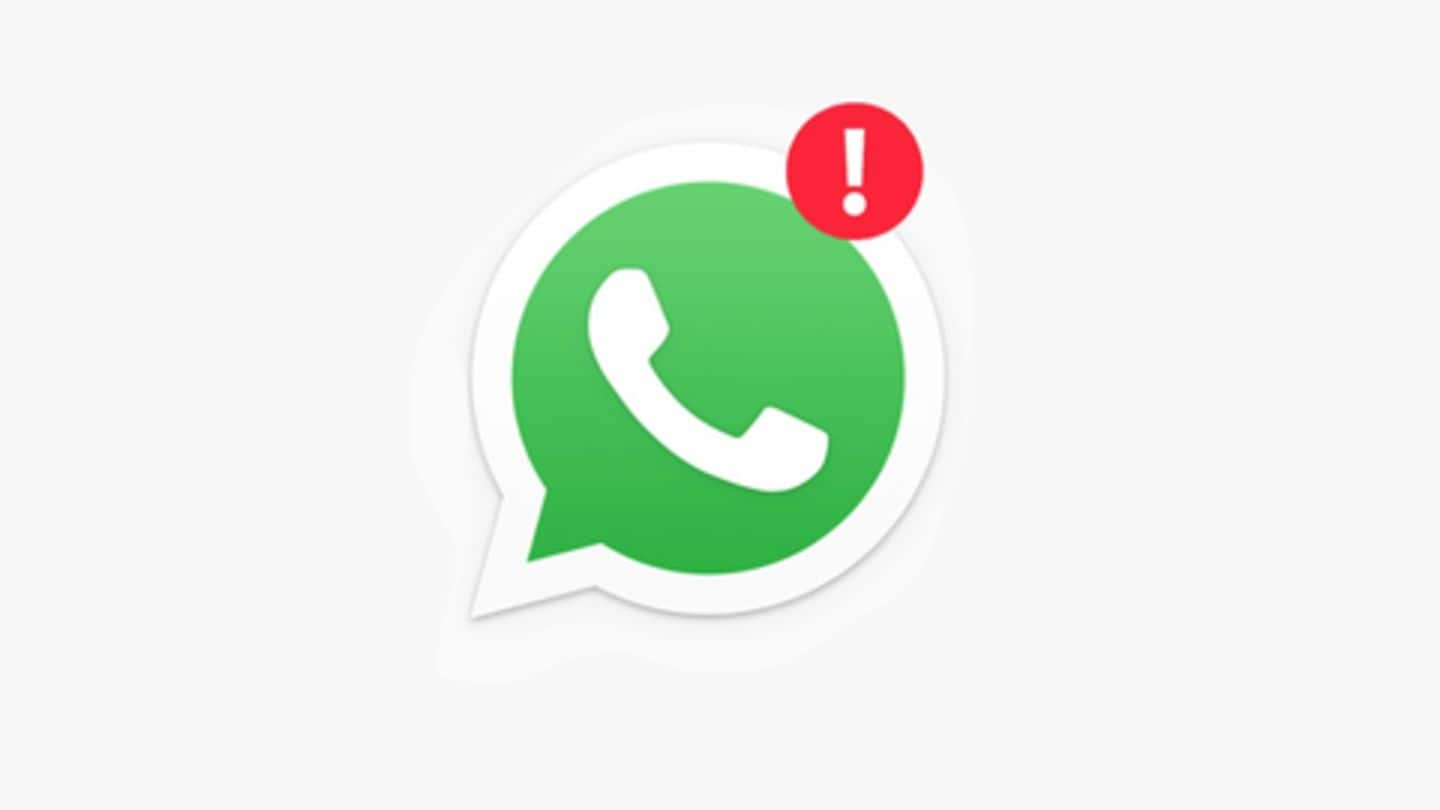
#Alert: WhatsApp message offering 1,000GB free data is a scam
What's the story
Catering to over 1.5 billion users across Android and iOS platforms, it's no surprise that WhatsApp is often targeted by cyber-criminals. The latest scam, as spotted by researchers at ESET, is a message that lures users by claiming WhatsApp is offering 1,000GB of free internet data to celebrate its tenth anniversary. Here's all about the scam.
The bait
What does the message say
"WhatsApp Offers 1000GB Free Internet!" the message reads, with a link to click for more details. That URL is the first real giveaway that not everything is legit since it isn't an official WhatsApp domain. Nevertheless, when you click on the link, you will be redirected to a page that asks you to answer "three simple questions to get 1,000GB of internet."
The 'survey'
Free internet to limited users
The 'survey page' carries a message that WhatsApp is giving 1,000GB free data to a limited number of users as it celebrates its tenth anniversary. The message is overlaid by a countdown sticker warning that a limited number of rewards are left. Then you have the 'survey' questions ranging from how you found the offer to your opinion on the app.
Information
Next, you're asked to share the message with 30 people
Once you answer the questions, a pop-up appears that asks you to share the message (bait) with at least 30 other WhatsApp users to receive the grand offer - a ploy to boost the fake campaigns reach.
The goal
So, what's the motive of the scam?
The goal of this scam, as ESET points out, is "click fraud". The firm notes that it's a "highly prevalent monetization scheme that relies on racking up bogus ad clicks that ultimately bring revenues for the operators of any given campaign." Clicking the bait doesn't result in the installation of malicious software or phishing attack but the fraudsters can do that through the link.
Be watchful
Use these tips to safeguard your interests
For fake websites, look out for HTTP and HTTPS prefixes. The former shouldn't be trusted with personal information or payments while the latter is secure as it uses an encrypted, private connection. Moreover, look for copyright information, company details, spot spelling errors, broken links etc. For spotting fake calls, use caller IDs like Truecaller to verify numbers and always doubt every good offer.